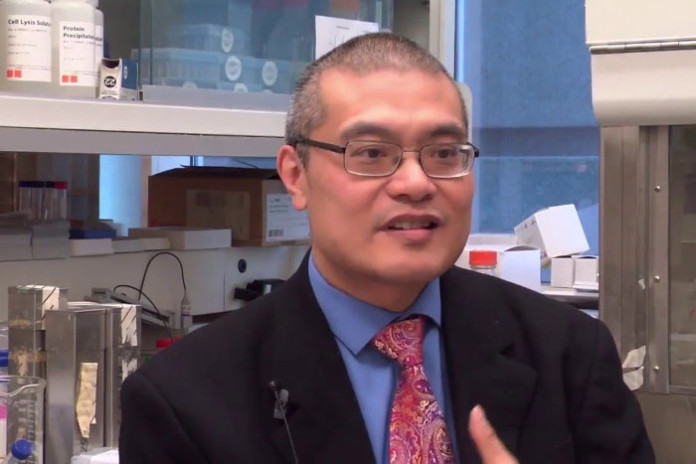The research, published online today in Clinical Cancer Research, a journal of the American Association for Cancer Research, solves one of the mysteries of why receiving cetuximab was futile for up to half of incurable colorectal cancer patients who did not respond to treatment, says principal investigator Dr. Geoffrey Liu, clinician-scientist at Princess Margaret Cancer Centre, University Health Network, in collaboration with the Canadian Cancer Trials Group and the Australasian Gastro-Intestinal Trials Group.
Dr. Liu holds the Alan B. Brown Chair in Molecular Genomics and is Associate Professor of Medicine, Medical Biophysics, and Epidemiology, Dalla Lana School of Public Health, University of Toronto. He talks about his research at https://youtu.be/jyntlRqqiz
“Our research discovered that the blood marker FCGR2A identifies a new group of patients that will benefit from taking cetuximab. With this finding, we believe we are now on the way to move it into the clinical setting to provide patients targeted, effective treatment,” says Dr. Liu.
The new research builds on an international clinical trial of about 10 years ago led by Canadians, in which the Princess Margaret participated (DOI: 10.1056/NEJMoa071834)
“In a group of metastatic colorectal cancer patients who were running out of treatment options, the previous clinical trial determined that cetuximab was most effective in a certain group of patients with tumours carrying a RAS mutation. But it certainly didn’t work for everyone and so the race was on to find out how to better identify which patients would benefit from this drug,” says Dr. Liu.
“Our finding, which resulted from analyzing archived tumor and normal tissue samples from some of the 572 patients enrolled in that trial, further refines this quest and defines another subset of patients who will respond to the drug.
“We need to find other ways to personalize cancer medicine for people with colorectal disease, keeping in mind that cetuximab is an expensive drug and can have side effects.”
“So instead of looking at aspects in the tumour, which is where RAS mutations show up, we looked at certain things in the blood and normal tissues that we could measure for heritable genetic variations.”
Dr. Liu, a medical oncologist who specializes in lung cancer, describes the pathway to today’s discovery as an ideal example of what can happen when you follow the drug and wherever the research may lead.
“When we followed the drug, first in lung cancer and then in other cancers, it led us to colorectal cancer where the drug was also being used, and directly onto this new finding.”
Source: Eurekalert



















































